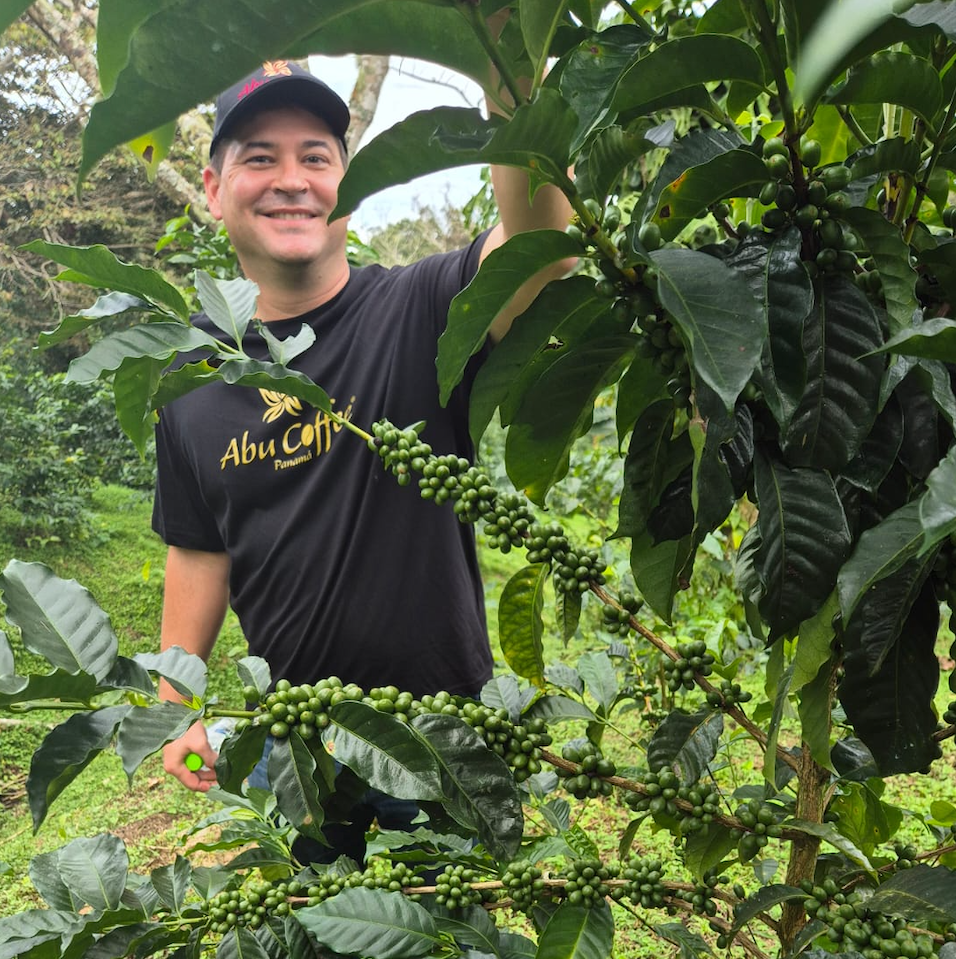



PANAMA Abu /2660 Geisha Washed WX
Roasting on demand.
Worldwide shipping. Exceptions might apply.
"Purity, class and contemporary excellence is embodied in this homage to the Geisha varietal."
- Abu Geisha
Summary of producer
Abu Geisha

Genesis
| Producer | José Luttrell |
| Country | Panama |
| Region | Cañas Verdes, Boquete |
| Altitude | 1,550 masl |
| Varietal | Geisha |
| Process | Washed |
| Lot size | 22kg |
| Trade | 120.00 USD/kg |
| Production | 2024 |
| History | Since 2020 |
Sensory
| Aroma | Bergamot, Honey |
| Flavor | Sugar cane, Honey, Hops |
| Aftertaste | Macadamia, White pepper, Mid intensity |
| Acidity | Orange, Citric, Mid intensity |
| Body | Juicy, Light |
| Balance | Synergetic |
| Spectra | Yellow, Purple, Bronze |
| Evaluation | Hario V60, Ceramic, VCF-01 filter, WBrC One (1:1:1) |
| Quality | 91.75 |
| Style | Traditional |
Made by Panama
Finished in Scandinavia
Finished and shipped from Sweden with standard or express shipment worldwide. Learn more about production cut-offs and shipping here
The price for your shipment is calculated and added to your total during checkout.
Only whole beans are produced and shipped.
Merchandise such as apparel might be shipped separately depending on production. However we do our best to accommodate one time shipment.
We ship to most countries in the world. Exceptions might apply.
Kindly see our terms and conditions, shipping policy.





